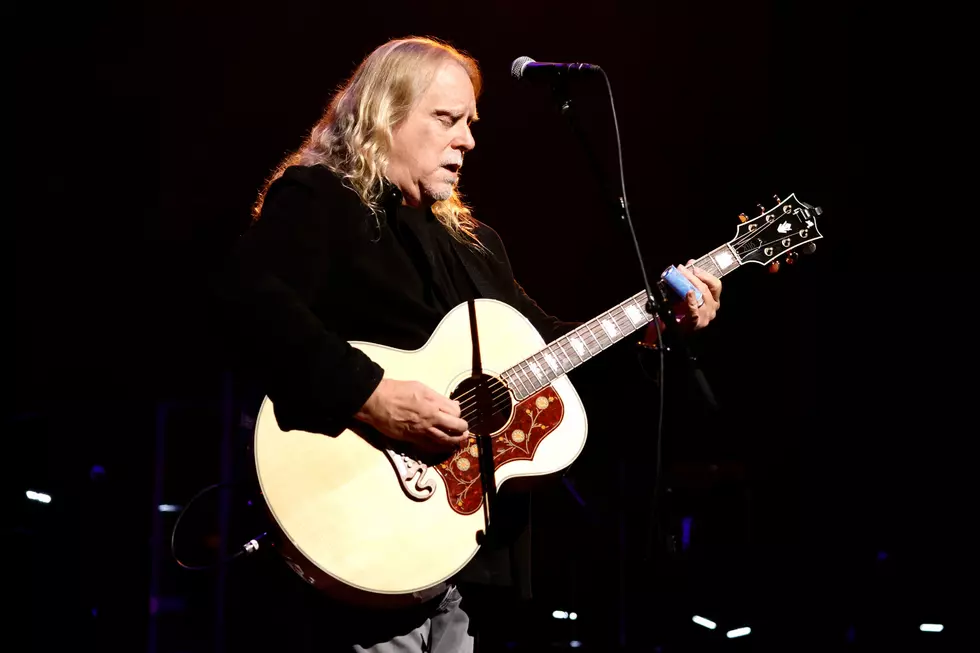
Gov’t Mule’s Next Release Will Be a ‘Rock ‘n’ Roll Album’
Warren Haynes and Gov’t Mule have always been prolific. It seems the former Allman Brothers Band member is never without an idea or three when it comes to the next project he wants to tackle.
But as Gov’t Mule approaches its 30th anniversary, they continue to push the envelope. In fact, the band recorded a new batch of originals while working on 2021’s Heavy Load Blues. A new deluxe edition of Gov’t Mule’s first-ever blues album includes an additional Haynes blues original called “Hiding Place,” as well as their take on Elton John’s “Have Mercy on the Criminal.” The follow up is due sometime in 2023.
In the meantime, Gov’t Mule has a heavy summer of touring on tap, including dates with Trombone Shorty, along with a return engagement as part of Willie Nelson’s Outlaw Music Festival, a trek which features ZZ Top and Jason Isbell, among others.
Haynes phoned UCR recently to discuss the band’s forthcoming music, Nelson and a number of other subjects.
The band recorded a whole new album at the same time Heavy Load Blues was being recorded. How much has that album evolved since we spoke last fall?
It’s pretty much remaining as it was. We went in and tidied up a few things here and there, but for the most part, it’s going to remain how it was. It’s just about ready to go. We did a few things like alternate versions of the same song and stuff like that, that we’re still working on. As usual, there’s a lot of material and our fans like excess, musically speaking. We’ll probably wind up putting out a main CD and then some sort of deluxe version or bonus package or whatever. In one way or another, we’ll include everything from the sessions.
Stylistically, how does this record sit next to the blues one?
You know, for the most part it’s a rock 'n' roll record. Most of the tunes are rock songs – in some ways, similar to what Gov’t Mule has done in the past – but in other cases quite different from an influence standpoint from what we’ve done in the past. Then, as has been reflected in the past 15 years or so of our career, there’s also some soul music influenced stuff that winds up sounding uniquely Gov’t Mule – because all of these influences combined together is what we kind of pride ourselves on. But it covers a lot of ground; it’s probably the most diverse record we’ve made. I may have said that about previous records, but I stand by that with this record. It just really covers a lot of musical ground. I’m very happy with it.
Listen to Gov't Mule's version of 'Have Mercy on the Criminal' by Elton John
One of the bonus tracks is your recording of Elton John’s “Have Mercy on the Criminal.” What was it like coming up with the version that the band is playing of that one?
We had played it on stage and when we went into the studio to make Heavy Load Blues, I thought it would translate in a more traditional setting if we approached it more like a traditional blues song. We decided to give it a try and see if it worked. Sometimes, with those kinds of things, you play it once or twice and if it’s not meant to be, you move on. I think we did two takes. The first one didn’t seem like the right tempo and the second one was it. We listened back to it and thought no one at first glance would think, “Yeah, that’s the Elton John song.” It just sounds like a cool blues tune.
How much of an Elton fan were you growing up?
Huge. I loved everything from the beginning. I didn’t discover them in chronological order. I think I started somewhere around Madman Across the Water and then moved backwards. I loved everything up through Captain Fantastic and the Brown Dirt Cowboy from a song-by-song perspective. There was just so much great material there. He was obviously singing wonderfully when you go back and listen to those records. I actually saw a live clip from ‘70 or ‘71 recently and man, it was just so fresh and exuberant. It was such unique, fresh music at that time period. I think everybody was drawn to it.
Gov’t Mule is doing more dates this year with Willie Nelson. What are some of your favorite experiences you’ve had with Willie?
I think it was New Year’s Eve of 1981 when we first met. I’ve been lucky to share the stage with him quite a few times. Just being a fly on the wall is amazing, because I think he’s a national treasure. There’s no other story like the Willie Nelson story when you look at his history and career. He changed the landscape of that type of music. The way people listen to music, he forced them to merge from both sides of the rock and country world, and to have him as that common thread. It’s cool now when you see there’s a similar type of movement going on in country music now, where there’s a lot of people that are really popular that are doing music that’s outside of the mainstream. It’s based on Willie kind of forging that path a long time ago.
What were the circumstances that put you in Willie’s orbit back then?
When I was a kid, I took a job playing guitar for David Allan Coe. That was my first real gig. It was kind of a world that I wasn’t prepared for. It was completely different than anything I’d ever done before. I didn’t have much experience playing country music, especially at that time. But it wound up being a catalyst, because it was through him that I met Gregg Allman and Dickey Betts. [That] eventually led me to working with Dickey as a songwriter and as a guitar player and singer in his band, which eventually led to me being part of the Allman Brothers. So in ‘81, I think we did a show with Willie at the Summit in Houston, Texas, for New Year’s Eve. For me, as a 21 year old kid, whatever I was at that moment, what an amazing experience. To be around all of these incredible songwriters, sitting around while people were passing the guitar around: “Here, let me play you a song,” “No, let me play you a song.” You know, as a young songwriter, it was an amazing experience to have.
Watch the Allman Brothers Band Perform 'End of the Line'
Both Seven Turns and Shades of Two Worlds turned 30 in the past few years. How do you look back on that time period?
Yeah, I mean, for me, those memories are etched in my brain. I have photographic memories of making those records. Everything that was going on in that time period, it was such an overwhelming time for me. I joined the Allman Brothers in ‘89 for what was supposed to be a 20th anniversary reunion tour. It was very successful and more importantly, everybody was getting along. Even more importantly, the music sounded fantastic. We wanted to keep it together: “Hey, what about making a record?” We made Seven Turns, which is a really great comeback record. That version of the band continued to get better over the next several years and we had not quite jelled our chemistry as much as it would eventually jell, but song for song and performance for performance, that’s a really great record.
Shades of Two Worlds showed growth from a musical standpoint and with the chemistry of the band. It was more adventurous. They had realized that the audience – and a new audience, for that matter – was open to more of what the Allman Brothers did in the old days, which was more jam-oriented, combining rock and blues and jazz and country music and folk music and all of that stuff together. [Because of that], Shades of Two Worlds is a little more jam-oriented. You could see the band getting better and better and better at that time. For me, it was just an unbelievable experience of being drawn into that and being part of a band that was one of my favorites of all time.
What was it like working with Tom Dowd?
I think about Tom all of the time. I learned so much from him. He was a very subtle guy. As a producer, he was subtle. He made suggestions, but he didn’t demand that anybody do anything a certain way. But he always had a solution when you came to a fork in the road. He would always encourage the band to solve the problem without him. But if they couldn’t, he would come up with a solution. Sometimes, it was just planting a seed and then still letting the band or somebody in the band run with the ball. I just learned so much from him from a recording standpoint. I picked his brain all of the time and the stories that guy had, it was just amazing. He was such a huge part of the history of recorded music and a great guy. I was fortunate to have done several records with him.
Top 25 Southern Rock Albums
Tedeschi Trucks Band Discuss Their Influences
More From Classic Rock Q107
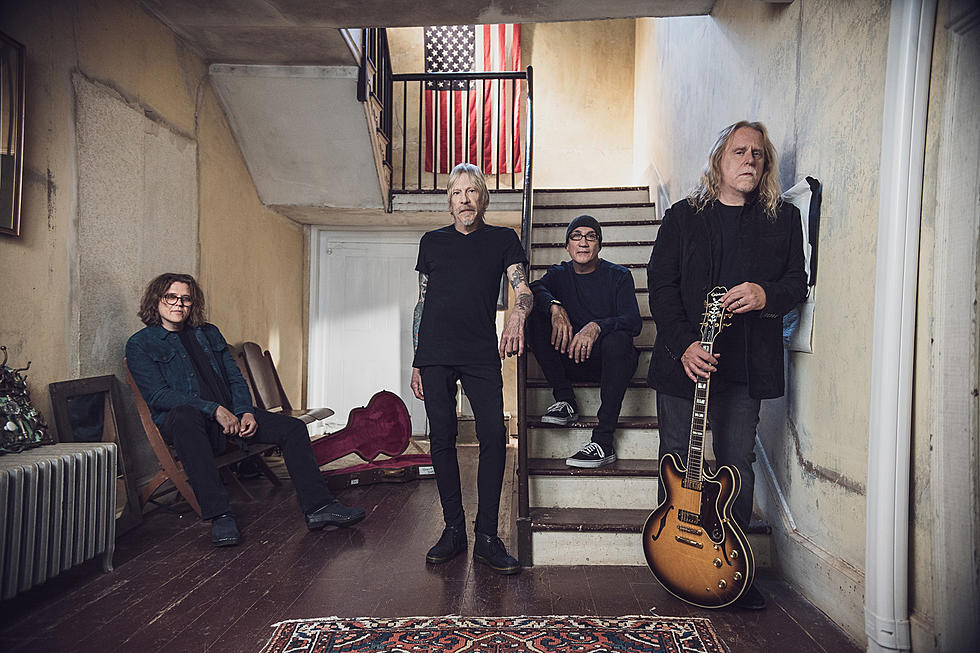

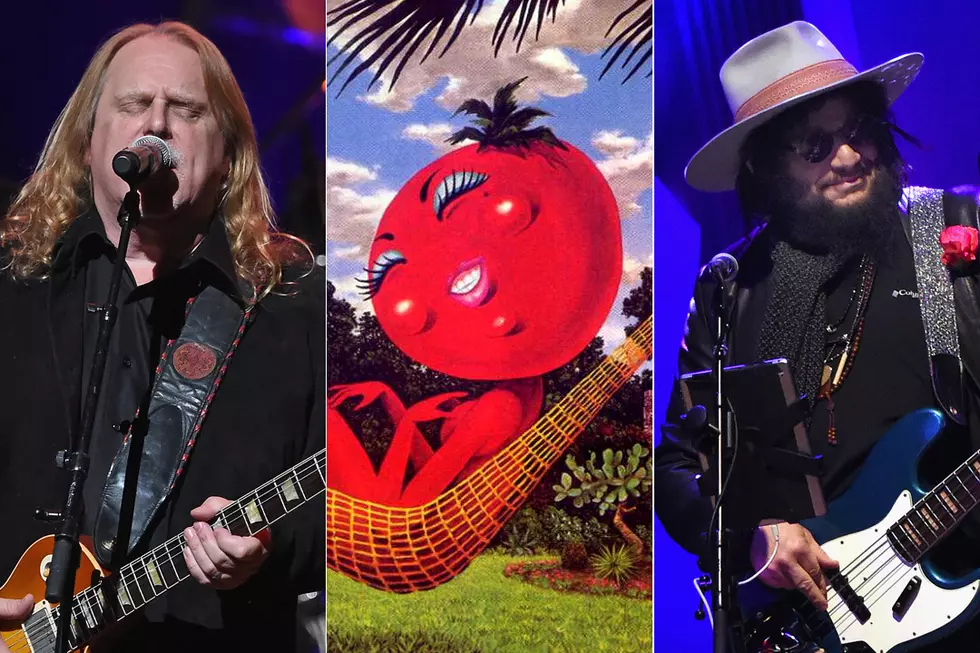
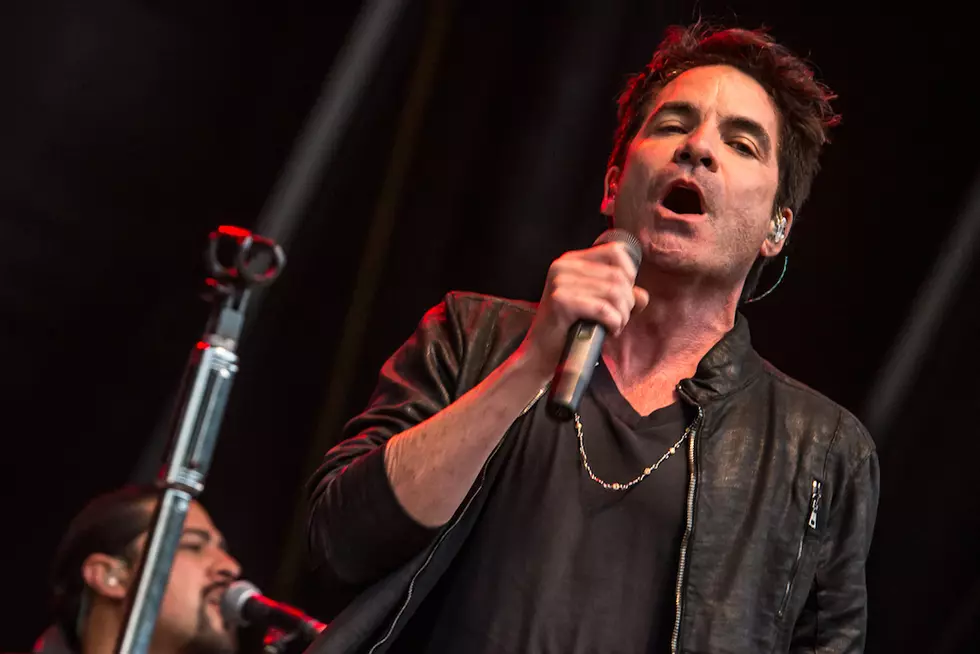

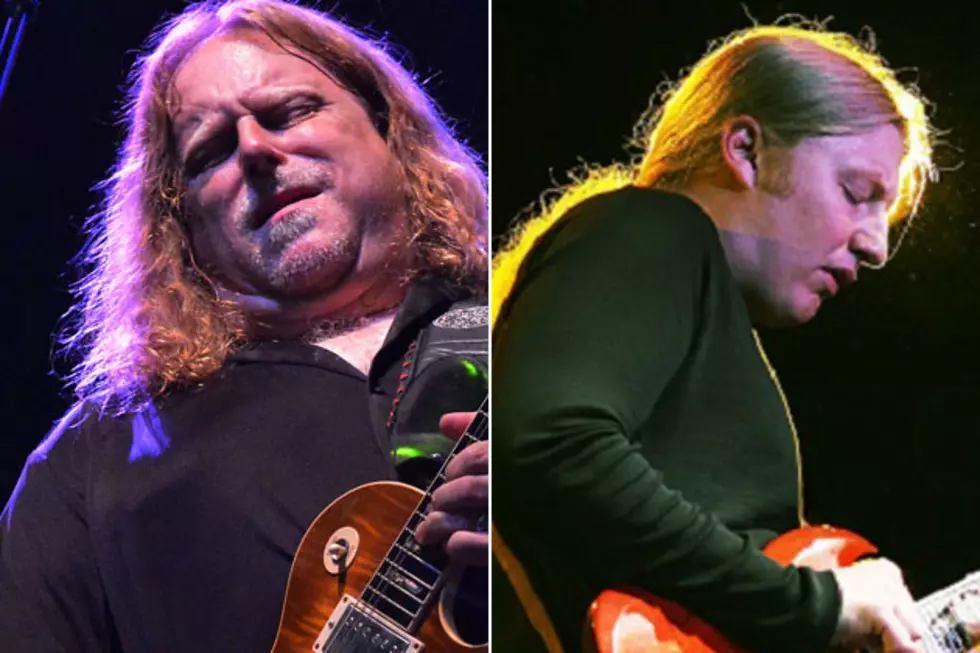
![Warren Haynes In The Studio With Eddie Webb [VIDEO]](http://townsquare.media/site/167/files/2011/05/86875932.jpg?w=980&q=75)


